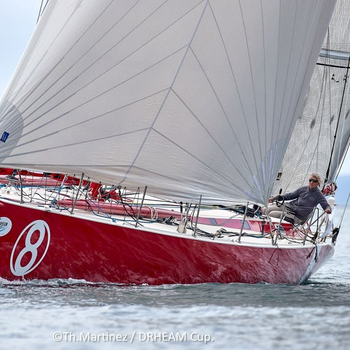
Everyone can make the same overwhelming observation every time they go to the seaside: the beach is dirty and covered with garbage, in particular plastic. Yet this pollution of the coast is nothing compared to the cumulative mass of garbage floating in the ocean, and worse still lining its depths. This is not without consequences for marine biodiversity and fishery resources.
Catherine CHABAUD (Renaissance, France), whose report on marine litter was approved today by the Parliamentary Committee on Fisheries, declared: “This is a subject that particularly touches me because I was able to observe the first waste at sea 30 years ago, during my first offshore races. I have been involved for years in the preservation of marine ecosystems and the development of more sustainable fishing. It is high time to integrate all maritime challenges together, obviously including marine pollution, which threatens our ecosystems as much as our fishing activities. When we talk about marine litter, we can't just pretend to clean the ocean without concerted action. We must act with common sense in areas of waste hotspots while emphasising prevention, research but also innovation, in order to integrate circularity throughout the fishing sector, which represents today many challenges”
The fishing sector is the first affected by marine pollution, with revenue losses estimated at between 1 and 5% depending on the activity. Fishermen have to sort waste from their catches and often repair torn or broken nets and trawls. Marine litter also regularly damages the ships themselves, including blocking the propeller systems.
Talking about the impact of marine litter on fisheries is sometimes paradoxical because this marine pollution also includes traps, buoys and other fishing gear and utensils abandoned, lost or thrown away. The primary source of marine litter, however, is on land. This is why the first objective of this report is to adopt a systemic approach, which puts the land-sea link into perspective. It is crucial to implement solutions going upstream (eco-design of fishing gear, simplification of materials and polymer, collection of waste in accumulation areas, strengthening of the circular economy in the fishing sector. fishing and aquaculture), downstream (facilitate and enhance the collection of marine litter, increase recycling and reuse of marine litter in the economy) by engaging fishermen at the heart of this action plan.
Beyond fishermen, it is the entire marine ecosystem, which plays a vital role for the sustainability of our fisheries, that is under threat. The strategy must therefore be comprehensive and integrate within the framework of strengthened governance the EU's objectives for climate and biodiversity. Our ocean is a common good and it is time to shoulder our individual and collective responsibilities in order to conserve it.